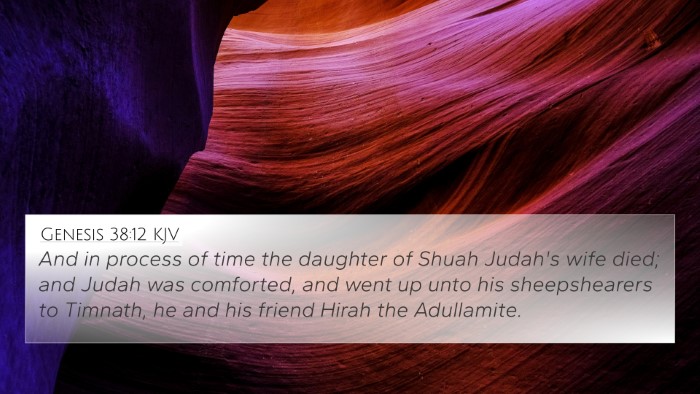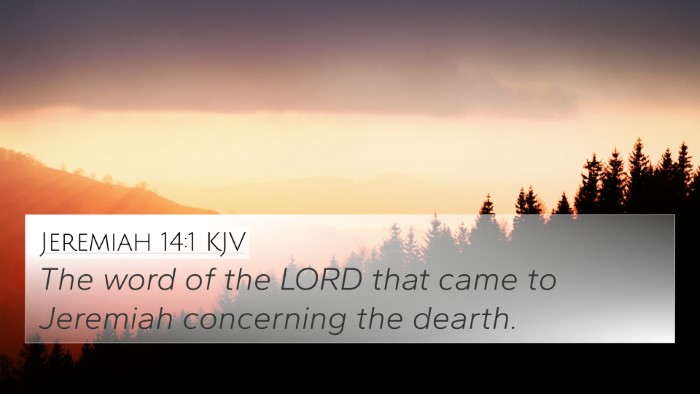Bible Verse: Joshua 15:57
Contextual Summary: Joshua 15:57 is part of the descriptive narrative outlining the cities allocated to the tribe of Judah after the Israelites conquered Canaan. The verse specifically lists the towns that were part of the territory, emphasizing the allocation during the period of Joshua's leadership.
Meaning and Interpretation
General Overview: This verse, while straightforward in its listing, carries significant implications regarding the fulfillment of God's promises, the importance of tribal inheritance, and the establishment of a settled community in the Promised Land.
Insights from Public Domain Commentaries
Matthew Henry: Henry notes that the listing of towns is not merely a dry enumeration but serves to remind the Israelites of God's faithfulness in giving them their inheritance. Each city represents part of the broader narrative of God's redemptive plan and His covenant with Abraham, Isaac, and Jacob.
Albert Barnes: Barnes highlights the importance of territories assigned to individual tribes to ensure that the Israelites remain distinct and identifiable as a nation. This structure of land division helps facilitate organized governance and religious observance. According to Barnes, the mentioned cities also reflect the diverse and rich geography of Judah.
Adam Clarke: Clarke elaborates on the historical and cultural significance of the cities. He believes that even though they appear obscure today, each city had unique traits and societal contributions in the context of Judah's legacy. Moreover, Clarke notes the spiritual application of understanding one’s inheritance in relation to God and how it calls for stewardship over one’s blessings.
Cross-Referencing Biblical Texts
Significance of Cross-Referencing: Cross-referencing biblical texts like Joshua 15:57 is critical for a comprehensive understanding of the scriptures. Below are notable biblical cross-references related to this verse:
- Numbers 34:19: This verse details the leaders of the tribes that were appointed to divide the land, highlighting the administrative framework in place for such allocations.
- Deuteronomy 31:7: Here, Moses commissions Joshua to lead Israel, establishing continuity of leadership and a focus on the fulfillment of God’s promises.
- Joshua 11:23: This serves as a confirmation that Joshua had completed the conquest of the land, reminding of the overarching narrative of land ownership and covenant fulfillment.
- Hebrews 11:9-10: This reflects on the faith of the patriarchs who sought a heavenly city, linking to the concept of earthly inheritance versus spiritual promise.
- 1 Chronicles 2:50-55: This outlines the genealogical significance and economic importance of the families in Judah, expanding our understanding of the cities' roles.
- Joshua 14:6-12: This depicts Caleb’s claim to his inheritance, underscoring that the cities were part of a personal stake in God’s promises.
- Lamentations 3:24: This reflects the spiritual inheritance believers receive and God's faithfulness, similar to the Israelites' literal inheritance.
Thematic Connections
Connecting the themes in Joshua 15:57 reveals insights into inheritance, identity, and God’s promises. The cities listed resonate with themes echoed throughout biblical history, emphasizing God's intention to establish His people in a tangible way.
Tools for Bible Cross-Referencing
For deep study and understanding, utilizing tools such as a Bible concordance, Bible cross-reference guide, and cross-reference Bible study methods can enhance the study experience by illuminating connections among verses.
How to Use Cross-References:
- Determine key themes in the primary verse (Joshua 15:57) for exploration.
- Utilize a Bible reference resource to find related verses.
- Analyze the historical and theological context of each connected verse.
- Consider the implications of each connection for the modern believer.
Conclusion
Final Thoughts: The study of Joshua 15:57 through the lens of various commentaries and cross-references highlights the intricacies of biblical texts and the unifying narrative of God’s faithfulness throughout scripture. By engaging in cross-referencing biblical texts, readers can uncover deeper meanings, thematic connections, and the overarching story of redemption that runs from Genesis through the New Testament.





